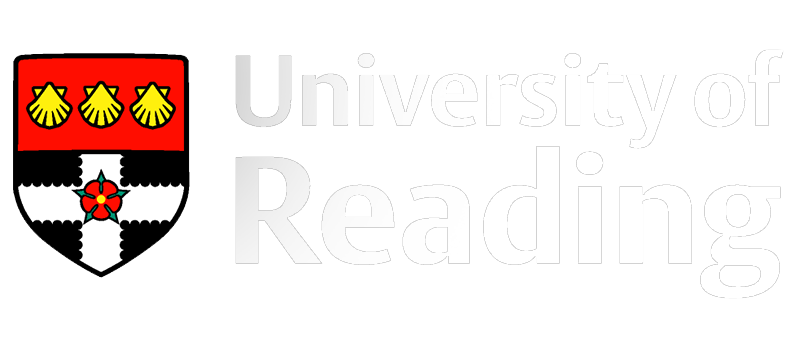
University of Reading
The University is home to more than 23,000 students from over 150 countries and 4,000 staff.
A world leader in climate science and winner of the Queen’s Anniversary Prize. The University’s School of Mathematical, Physical and Computational Science was awarded the Athena Swan Silver in 2023, in recognition of good employment practices in relation to women working in science, engineering and technology.
The Times and Sunday Times, Good University Guide 2025, Sustainable University of the Year.
Winner of Outstanding Contribution to Sustainability Leadership, London Higher Award 2024.
Research is divided into four broad themes: Agriculture, Food and Health; Environment; Heritage and Creativity; and Prosperity and Resilience.
Ranked 1st in the People & Planet University League 2023/24 and 4th in 2024/25.
Ranked 13% in the QS World University Rankings in 2025.
In excess of 70 Global partners.
First ever winner of the Times Higher Education Outstanding Contribution to Environmental Leadership award 2023.
Potential PhD projects
- Improving past climate reconstruction using machine learning
Climate reconstructions over the last century currently have large uncertainties because algorithms used to assimilate observations with models only take observations prior the times of interest because they were designed for numerical weather prediction. Using rapidly developing Machine Learning algorithms, you will explore ways of projecting observations backwards in time to improve the full temporal consistency leading to better understanding of change.
Partner: Met Office, UK - Studying Rare Events in Climate Change and Sustainable Environment
Rare and extreme events are getting more common and causing severe consequences due to climate change. This PhD project is aimed at developing advanced statistical sampling and multiscale computer simulation methods to investigate rare events and their transition dynamics in complex systems related to weather, climate and environmental sustainability. - Co-occurring meteoclimatic extremes and their impacts on food production
The production of food strongly depends on a small number of global “breadbaskets”. This poses a significant risk should several of them fail at the same time. We will develop and apply novel statistical and computational methods to assess how climate change affects these risks. - Aggregation of climate extremes in presence of missing data
Join an exciting PhD project tackling the urgent challenge of verifying climate change! You’ll develop innovative distributed inference methods for extreme climate events, aggregating extreme value index estimates from diverse, spatially distributed data – even with missing values – to create robust statistical tools that drive impactful climate analysis. - AI Forecast Verification at Storm and Urban Resolving Scales
Join the drive to revolutionise weather forecasting. This project combines cutting-edge AI, high-resolution simulations, and crowd-sourced observations to tackle the challenge of predicting extreme storms and localised weather. Innovative methods will assess accuracy, realism, and uncertainty, advancing science that protects lives and communities.
Partner: Met Office, UK - Fast numerical and machine learning approaches to make the best use of satellite data in weather prediction
As extreme weather events become more frequent in our changing climate, weather forecast accuracy is crucial for saving lives and livelihoods. This project will explore innovative methods to enhance next-generation weather prediction using high resolution satellite data, drawing on techniques at the intersection of numerical linear algebra and machine learning.
Partner: NCEO - Resolving and parameterising coastal eddies in ocean climate models
Mesoscale eddies (ocean currents flowing in closed patterns) are essential players in the Earth’s climate, but existing climate models are unable to accurately simulate their effects. In this project, we will contribute to the development of parameterisations of eddy transport across continental margins, where large variations in ocean depth exist.
Partner: National Oceanography Centre (NOC) - AI in the Museum – quantifying over a century of change in the geographical ranges of the birds of Madagascar
How is climate change impacting life on earth? We will use unique historical data on wild birds from a biodiversity hotspot, Madagascar, to investigate this. Our project will combine museum specimens and modern data to explore how climate and land-use change are reshaping the ranges of Madagascar birds through time.
Partner: Natural History Museum (NHM) - Predicting the Cod distribution in the Celtic Sea using Satellite Ocean Colour and Machine Learning
This project will develop a novel, data-driven machine-learning-based modelling framework to provide near-real time predictions of the distributions of the highly mobile Celtic Sea cod, which is sought after by UK and EU fisheries managers and policy makers, as well as by the International Council for Exploration of the Seas.
Partner: Centre of Environment Fisheries and Aquaculture (CEFAS) - Refining the potential to predict catastrophic changes in ocean circulation using stochastic differential equation modelling
Predicting potential tipping points in the Atlantic Meridional Overturning Circulation (AMOC) is an exciting application of stochastic differential equation (SDE) modeling. This PhD project aims to analyze SDE models using simulated climate data, explore the sensitivity of predictions to noise, and refine early warning indicators for potential abrupt circulation changes. - Rare event simulation and machine learning of extreme European drought
Extreme events, such as droughts, can have devastating impacts. However, both the limited observational record and climate change make understanding the probabilities and characteristics of the most extreme events challenging. We will combine machine learning methods with novel rare event simulation methods to investigate the most extreme possible UK droughts.
Partner: Met Office, UK - Accounting for model error in Earth system digital twins
Earth system digital twins fuse machine learning models with real-world observations to predict the impact of policy choices on the environment and society under different scenarios. This project involves working at the intersection of applied mathematics, machine learning and climate science to develop next-generation digital twins that capture uncertainties in complex physical models, advancing these powerful tools for better-informed decision-making in a changing climate.
Partner: NCEO - Sensitivity analysis of extreme event forecasting using explainable AI
Building trust in AI forecasts for high-risk extreme events requires both confidence in their reliability and representation of underlying processes. This PhD project leverages explainable AI to assess physical plausibility, enhance confidence, understand forecast failures, and illuminate the “black-box” of AI models for forecasts of extreme weather events.
Partner: Met Office, UK - Constructing plausible worst-case scenarios for UK hydrological drought
UK water companies have a regulatory requirement to protect against severe drought, defined as a 1-in-200-year event. This project will develop defensible methods of testing this requirement using physical climate storylines (physically self-consistent, causal explanations) to construct plausible worst cases, anchored in downward counterfactuals of historical events.
Partner: Anglian Water
Do you have more questions?
Contact us
University of Reading
How to apply
Step 1
Send Your Application
Step 2
Provide Supporting Documents
Step 3
Assessment & Interviews
Step 4
Get An Offer
Apply now

Imperial College London

University of Reading

University of Southampton
Fully Funded Studentships
Study while receiving a full stipend (with enchanced stipend), PhD fees paid for 4 years, and a generous allowance for research-related travel.
